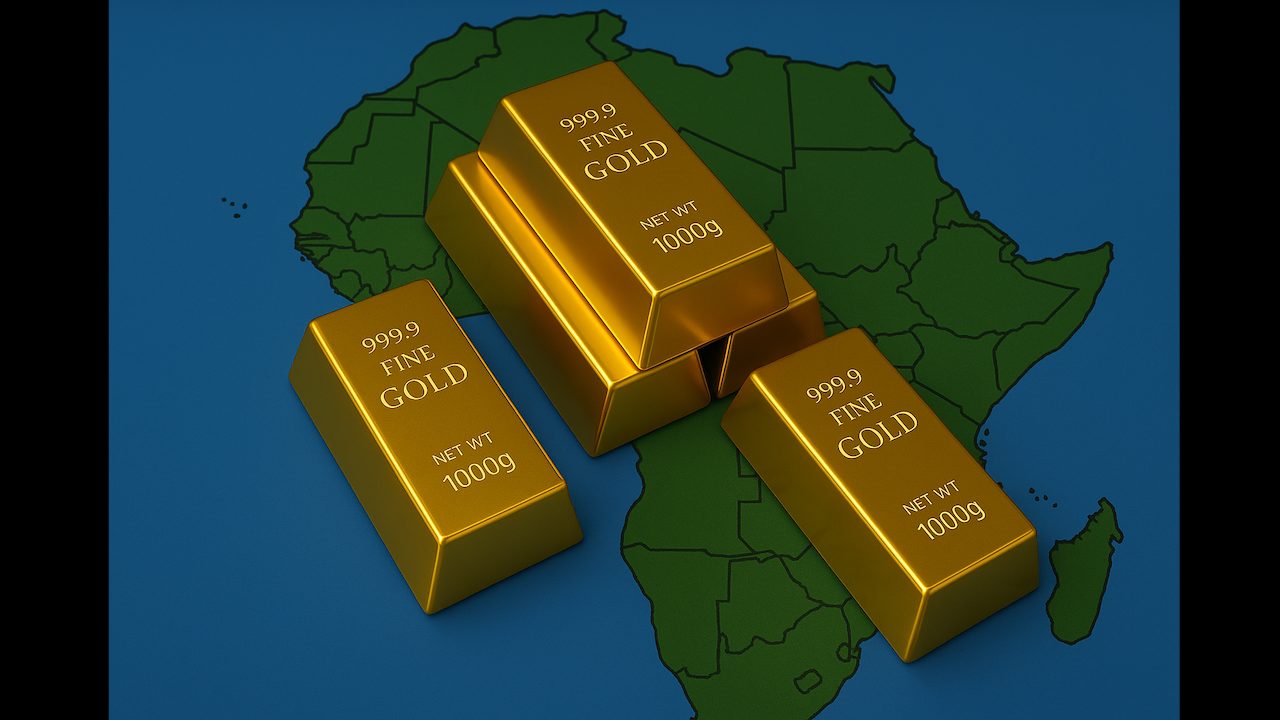(Mike Maharrey, Money Metals News Service) Central banks have been aggressively adding gold to their reserves over the last three years, and several African banks are poised to join the party.
On net, central banks officially increased their gold holdings by 1,044.6 tonnes in 2024. It was the 15th consecutive year of expanding gold reserves.
Last year was the third-largest expansion of central bank gold reserves on record, coming in just 6.2 tonnes lower than in 2023 and 91 tonnes lower than the all-time high set in 2022. (1,136 tonnes). 2022 was the highest level of net purchases on record, dating back to 1950, including since the suspension of dollar convertibility into gold in 1971.
Many of these countries are seeking to diversify their holdings and minimize their dependence on dollar assets due to the U.S. weaponization of the dollar.
Meanwhile, the dollar’s share of global reserve currencies slid further last year. As of the end of 2024, dollars made up 57.8 percent of global reserves. That is the lowest level since 1994, representing a 7.3 percent decline over the last decade. In 2002, dollars accounted for about 72 percent of total reserves.
Some of the biggest gold buyers over the last year include Poland, India, Turkey, China, and the Czech Republic.
According to the World Gold Council, at least four African banks have announced plans to join these countries in expanding their gold reserves.
The Bank of Namibia announced plans to begin accumulating gold in May, with the goal of increasing it to 3 percent of total reserves. A bank statement said, “This aligns with global central banking trends, given gold’s strategic value in hedging against inflation and enhancing resilience during economic shocks.”
Namibia currently holds no gold reserves.
Last month, the National Bank of Rwanda announced plans to expand its gold reserves.
“Similar to our peers, the central bank of Rwanda is conducting a study to see whether gold can be embraced as an additional asset that we can invest in given its ability to counter shocks on financial markets and as a hedging option in terms of external shocks,” NBR Governor Soraya Hakuziyaremye said earlier this year.
Last month, she announced that the central bank board had approved gold as an investment asset and the bank would begin buying the yellow metal at the start of the fiscal year in July.
“We will probably communicate the end of the next financial year, how much gold we have been able to acquire, and whether its potential for high returns is what we have expected,” Hakuziyaremye said.
Bank of Uganda Governor Michael Atingi-Ego recently told Bloomberg TV that the bank plans to begin diversifying reserves into gold with purchases from artisanal miners. Uganda wants gold to help “address the risks in the international financial markets.”
The Central Bank of Madagascar also recently released a statement saying it plans to acquire 4 tonnes of gold.
At least one other African central bank is considering gold. In April, Bank of Kenya Governor Kamau Thugge told Bloomberg TV they are “actively considering” adding gold to their reserves for diversification purposes, although he didn’t provide any timeline.
These countries join other African nations already on the gold bandwagon.
Last June, Tanzania announced a plan to spend $400 million on six tons of gold. Tanzania Finance Minister Dr. Mwigulu Nchemba also issued a directive to curb the widespread use of the U.S. dollar in the country.
Nigeria has launched a domestic gold-buying plan to bolster its reserves. In addition to buying locally sourced gold, the Nigerian central bank has announced plans to bring its existing gold reserves back into the country “to mitigate risks associated with the weakening U.S. economy.”
“Economic indicators such as rising inflation, escalating debt levels, and geopolitical tensions have raised apprehensions among Nigerian policymakers about the stability of the U.S. financial system.”
These African nations are part of a broader trend of countries and individuals seeking gold as a place to hide.
Mike Maharrey is a journalist and market analyst for Money Metals with over a decade of experience in precious metals. He holds a BS in accounting from the University of Kentucky and a BA in journalism from the University of South Florida.

